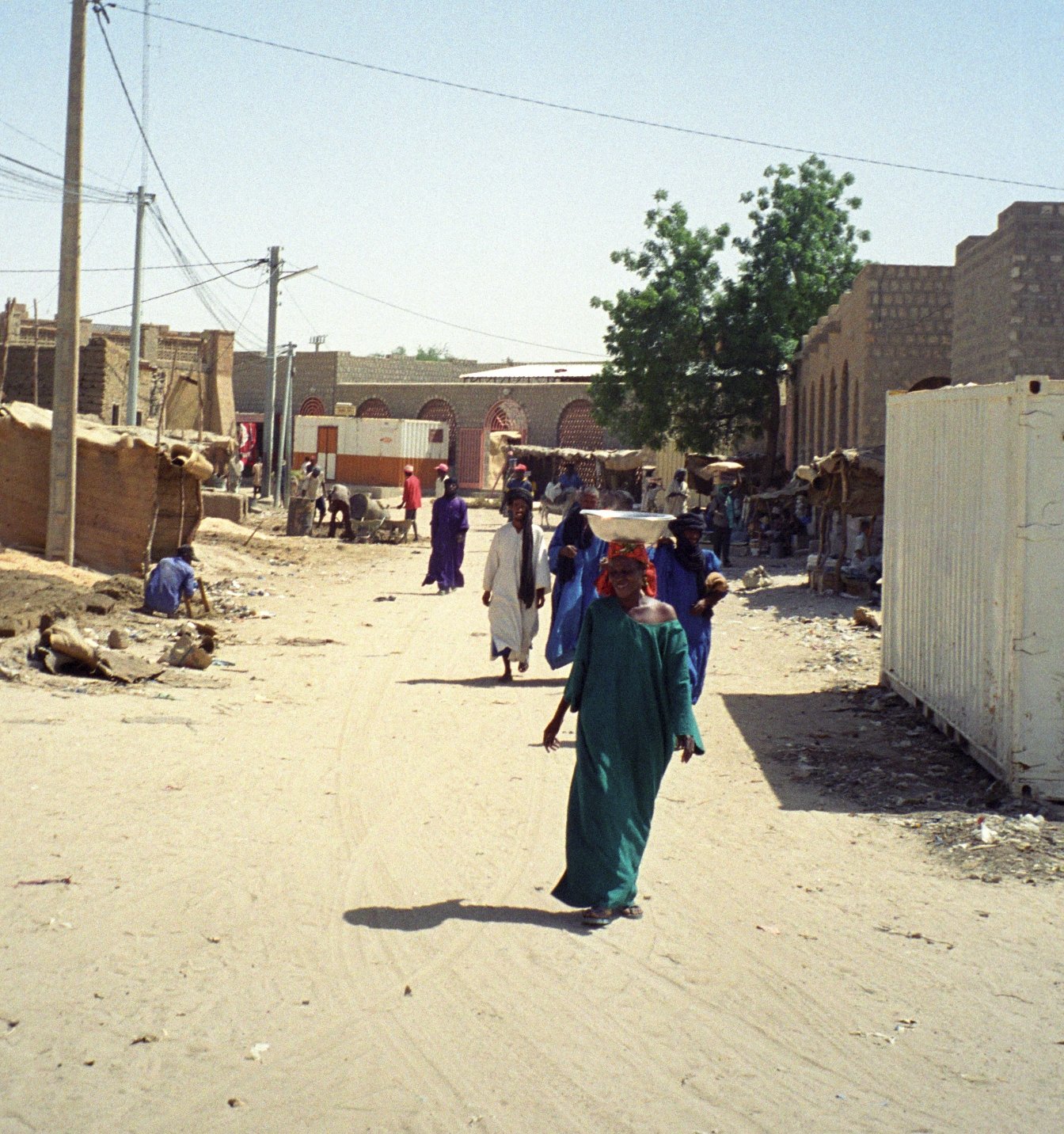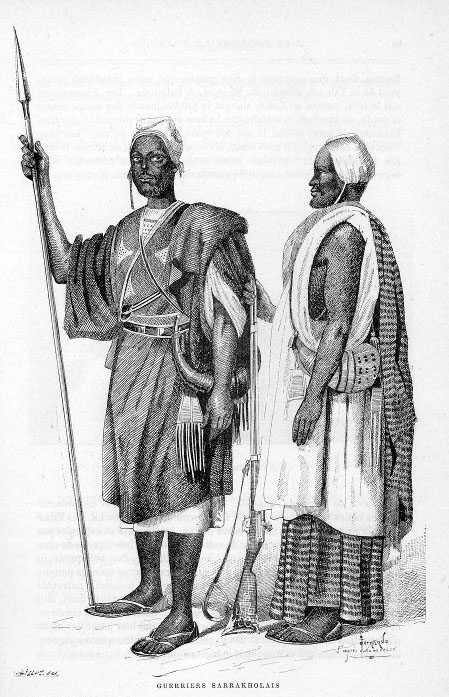|
Griots
A griot (; ; Manding: jali or jeli (in N'Ko: , ''djeli'' or ''djéli'' in French spelling); Serer: kevel or kewel / okawul; Wolof: gewel) is a West African historian, storyteller, praise singer, poet, and/or musician. The griot is a repository of oral tradition and is often seen as a leader due to their position as an advisor to royal personages. As a result of the former of these two functions, they are sometimes called bards. They also act as mediators in disputes. Occurrence and naming Many griots today live in many parts of West Africa and are present among the Mande peoples ( Mandinka or Malinké, Bambara, Soninke etc.), Fulɓe ( Fula), Hausa, Songhai, Tukulóor, Wolof, Serer,Unesco. Regional Office for Education in Africa, ''Educafrica, Numéro 11'', (ed. Unesco, Regional Office for Education in Africa, 1984), p. 110Hale, Thomas Albert, ''Griots and Griottes: Masters of Words and Music'', Indiana University Press (1998), p. 176, Mossi, Dagomba, Maur ... [...More Info...] [...Related Items...] OR: [Wikipedia] [Google] [Baidu] |
West Africa
West Africa or Western Africa is the westernmost region of Africa. The United Nations defines Western Africa as the 16 countries of Benin, Burkina Faso, Cape Verde, The Gambia, Ghana, Guinea, Guinea-Bissau, Ivory Coast, Liberia, Mali, Mauritania, Niger, Nigeria, Senegal, Sierra Leone, and Togo, as well as Saint Helena, Ascension and Tristan da Cunha ( United Kingdom Overseas Territory).Paul R. Masson, Catherine Anne Pattillo, "Monetary union in West Africa (ECOWAS): is it desirable and how could it be achieved?" (Introduction). International Monetary Fund, 2001. The population of West Africa is estimated at about million people as of , and at 381,981,000 as of 2017, of which 189,672,000 are female and 192,309,000 male. The region is demographically and economically one of the fastest growing on the African continent. Early history in West Africa included a number of prominent regional powers that dominated different parts of both the coastal and internal trade networ ... [...More Info...] [...Related Items...] OR: [Wikipedia] [Google] [Baidu] |
Serer People
The Serer people are a West African ethnoreligious group."Charisma and Ethnicity in Political Context: A Case Study in the Establishment of a Senegalese Religious Clientele" Leonardo A. Villalón, Journal of the International African Institute, Vol. 63, No. 1 (1993), p. 95, on behalf of the International African Institute They are the third-largest ethnic group in Senegal, making up 15% of the Senegalese population. They are also found ... [...More Info...] [...Related Items...] OR: [Wikipedia] [Google] [Baidu] |
Malinké
The Mandinka or Malinke are a West African ethnic group primarily found in southern Mali, the Gambia and eastern Guinea. Numbering about 11 million, they are the largest subgroup of the Mandé peoples and one of the largest ethnic-linguistic groups in Africa. They speak the Manding languages in the Mande language family and a '' lingua franca'' in much of West Africa. Over 99% of Mandinka adhere to Islam. They are predominantly subsistence farmers and live in rural villages. Their largest urban center is Bamako, the capital of Mali. The Mandinka are the descendants of the Mali Empire, which rose to power in the 13th century under the rule of king Sundiata Keita, who founded an empire that would go on to span a large part of West Africa. They migrated west from the Niger River in search of better agricultural lands and more opportunities for conquest. Nowadays, the Mandinka inhabit the West Sudanian savanna region extending from The Gambia and the Casamance region in Senegal t ... [...More Info...] [...Related Items...] OR: [Wikipedia] [Google] [Baidu] |
Mandé Peoples
The Mandé peoples are ethnic groups who are speakers of Mande languages. Various Mandé speaking ethnic groups are found particularly toward the west of West Africa. The Mandé Speaking languages are divided into two primary groups: East Mandé and West Mandé. The Mandinka people, Mandinka or Malinke people, Manding (Malinke, Bambara and Dioula), a western branch of the Mandé, are credited with the founding of the largest ancient West African empires. Other large Mandé speaking ethnicities include the Soninke people, Soninke and Susu people, Susu as well as smaller ethnic groups such as the Ligbi language, Ligbi, Vai (ethnic group), Vai, and Bissa people, Bissa. Mandé speaking people inhabit various environments, from coastal Guinean Forests of West Africa, rainforests to the sparse Sahel. They have a wide range of cuisines, cultures, and beliefs, and are organized mainly by their language group. Today they are predominantly Muslim and follow a caste system. Islam has play ... [...More Info...] [...Related Items...] OR: [Wikipedia] [Google] [Baidu] |
Wolof People
The Wolof people () are a West African ethnic group found in northwestern Senegal, the Gambia, and southwestern coastal Mauritania. In Senegal, the Wolof are the largest ethnic group (~43.3%), while elsewhere they are a minority. They refer to themselves as ''Wolof'' and speak the Wolof language, in the West Atlantic branch of the Niger–Congo family of languages. Their early history is unclear. The earliest documented mention of the Wolof is found in the records of 15th-century, Portuguese-financed Italian traveller Alvise Cadamosto, who mentioned well-established Islamic Wolof chiefs advised by Muslim counselors. The Wolof belonged to the medieval-era Wolof Empire of the Senegambia region. Details of the pre-Islamic religious traditions of the Wolof are unknown, and their oral traditions state them to have been adherents of Islam since the founding king of Jolof. However, historical evidence left by Islamic scholars and European travelers suggest that Wolof warriors an ... [...More Info...] [...Related Items...] OR: [Wikipedia] [Google] [Baidu] |
Songhai People
The Songhai people (also Ayneha, Songhay or Sonrai)'' are an ethnolinguistic group in West Africa who speak the various Songhai languages. Their history and ''lingua franca'' is linked to the Songhai Empire which dominated the western Sahel in the 15th and 16th century. Predominantly a Muslim community, the Songhai are found primarily throughout Niger and Mali in the Sahel and Sahara. The name Songhai was historically neither an ethnic nor linguistic designation, but a name for the ruling caste of the Songhai Empire which are the Songhai proper of ''sunni'' and ''Askya'' dynasty found predominantly in present-day Niger. These people call themselves ''Ayneha''. Although some Speakers in Mali have also adopted the name ''Songhay'' as an ethnic designation, other Songhay-speaking groups identify themselves by other ethnic terms such as Zarma (or Djerma, the largest subgroup) or Isawaghen. The dialect of Koyraboro Senni spoken in Gao is unintelligible to speakers of the Zarma d ... [...More Info...] [...Related Items...] OR: [Wikipedia] [Google] [Baidu] |
Soninke People
The Soninke people are a West African Mande-speaking ethnic group found in Mali, Fouta Djallon, southern Mauritania, eastern Senegal, Guinea and The Gambia. They speak the Soninke language, also called the Serakhulle or Azer language, which is one of the Mande languages. Soninke people were the founders of the ancient empire of Ghana or Wagadou c. 300–1240 CE, Subgroups of Soninke include the Maraka and Wangara. When the Ghana empire was destroyed, the resulting diaspora brought Soninkes to Mali, Mauritania, Senegal, Gambia, Burkina Faso, Côte d'Ivoire, Guinée-Conakry, modern-day Republic of Ghana, and Guinea-Bissau where some of this trading diaspora was called Wangara. Predominantly Muslims, the Soninke were one of the early ethnic groups from West Africa to convert to Islam in about the 10th century. The contemporary population of Soninke people is estimated to be over 2 million. The cultural practices of Soninke people are similar to the Mandé peoples, and thos ... [...More Info...] [...Related Items...] OR: [Wikipedia] [Google] [Baidu] |
Dagomba People
The Dagombas are a Gur ethnic group of northern Ghana, numbering more than 2.3 million people. They inhabit the Northern Region of Ghana in the sparse savanna region below the sahelian belt, known as the Sudan. They speak the Dagbani language which belongs to the Mole-Dagbani sub-group of the Gur languages. There are around 1 to 2 million speakers of Dagbani. The Dagomba are historically related to the Mossi people. The Mohi/Mossi now have their homeland in central present-day Burkina Faso. The homeland of the Dagomba is called Dagbon and covers about 20,000 km2 in area. Naa Gbewaa is regarded as the founder of Dagbon. Dagomba are one of the ethnic groups with a sophisticated oral tradition woven around drums and other musical instruments. Thus, most of their history, until quite recently, has been passed down via oral tradition with drummers as professional griots. According to oral tradition, the political history of Dagbon has its origin in the life story of a ... [...More Info...] [...Related Items...] OR: [Wikipedia] [Google] [Baidu] |
Mauritania
Mauritania (; ar, موريتانيا, ', french: Mauritanie; Berber languages, Berber: ''Agawej'' or ''Cengit''; Pulaar language, Pulaar: ''Moritani''; Wolof language, Wolof: ''Gànnaar''; Soninke language, Soninke:), officially the Islamic Republic of Mauritania ( ar, الجمهورية الإسلامية الموريتانية), is a sovereign country in West Africa. It is bordered by the Atlantic Ocean to the west, Western Sahara to Mauritania–Western Sahara border, the north and northwest, Algeria to Algeria–Mauritania border, the northeast, Mali to Mali–Mauritania border, the east and southeast, and Senegal to Mauritania–Senegal border, the southwest. Mauritania is the 11th-largest country in Africa and the 28th-largest in the world, and 90% of its territory is situated in the Sahara. Most of its population of 4.4 million lives in the temperate south of the country, with roughly one-third concentrated in the Capital city, capital and largest city, Nouakchott, loca ... [...More Info...] [...Related Items...] OR: [Wikipedia] [Google] [Baidu] |
Mossi People
{{disambiguation, surname ...
Mossi may refer to: * Mossi people *Mossi language *Mossi Kingdoms * the Mossi, a Burkinabe variant of the Dongola horse * Mossi (given name) * Mossi (surname) See also * Mossie (other) * Mossy (other) *Mozzi (other) Mozzi may refer to: People * Alessandro Mapelli-Mozzi (born 1951), British-Italian alpine skier * Edoardo Mapelli Mozzi (born 1983), British-Italian property developer and husband of Princess Beatrice, a granddaughter of Queen Elizabeth II. * And ... [...More Info...] [...Related Items...] OR: [Wikipedia] [Google] [Baidu] |
French Language
French ( or ) is a Romance language of the Indo-European family. It descended from the Vulgar Latin of the Roman Empire, as did all Romance languages. French evolved from Gallo-Romance, the Latin spoken in Gaul, and more specifically in Northern Gaul. Its closest relatives are the other langues d'oïl—languages historically spoken in northern France and in southern Belgium, which French (Francien) largely supplanted. French was also influenced by native Celtic languages of Northern Roman Gaul like Gallia Belgica and by the ( Germanic) Frankish language of the post-Roman Frankish invaders. Today, owing to France's past overseas expansion, there are numerous French-based creole languages, most notably Haitian Creole. A French-speaking person or nation may be referred to as Francophone in both English and French. French is an official language in 29 countries across multiple continents, most of which are members of the '' Organisation internationale de la Francopho ... [...More Info...] [...Related Items...] OR: [Wikipedia] [Google] [Baidu] |









